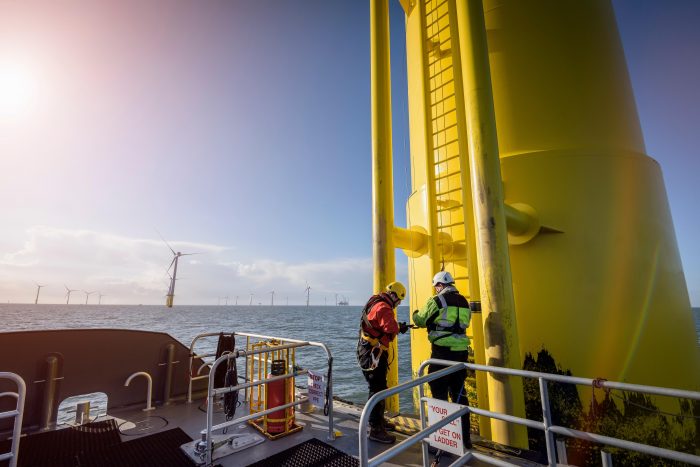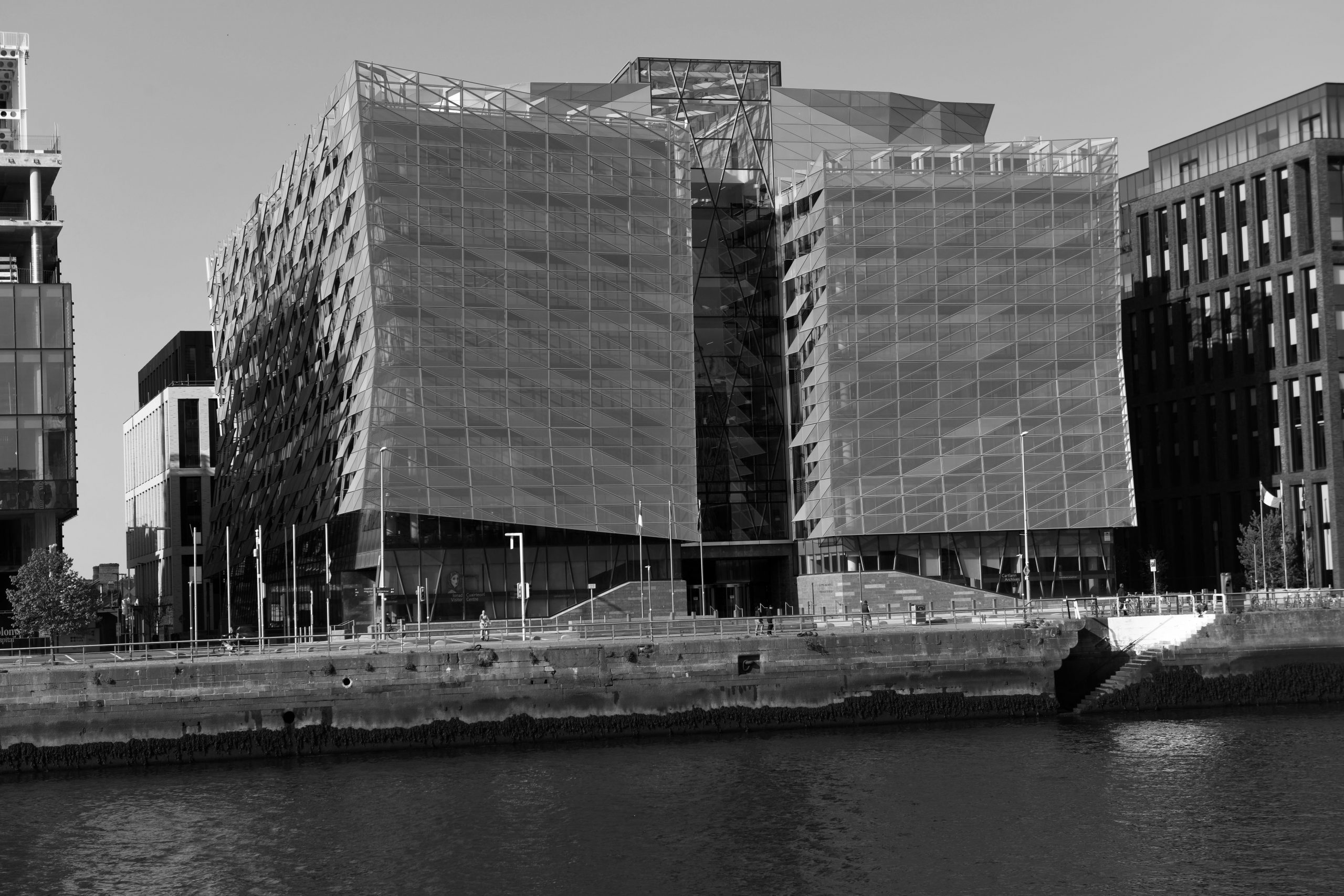Are we heading for a recession? Not so, according to the Minister for Finance Paschal Donohoe, who believes Ireland can navigate its way through the economic headwinds without slipping into recession territory.
Donohoe acknowledges that the growth forecast for 2023 is less than ideal, but, speaking on the margins of a string of IMF meetings in New York last week, maintained he was “optimistic and positive” about Ireland’s prospects.
Of course, Donohoe was hardly likely to signal an imminent recession – such an acknowledgement by the president of the Eurogroup would likely trigger one at breakneck pace. But his optimism is in step with his budget speech, and his comments to me in the aftermath of the Budget.
Donohoe is not the only one who believes Ireland can stave off a recession. Last week, KPMG published its annual CEO outlook. Now in its seventh year, the survey canvasses and compares the views of business leaders all over the world. In Ireland, it surveyed 50 chief executives of large corporates.
Globally, 86 per cent of business leaders expect a recession in their markets. In Ireland, 68 per cent of business leaders think we can avoid one, while 76 per cent are confident about the Irish economy’s growth outlook over the next three years.
The most immediate business concerns for Irish CEOs are rising interest rates, inflation and supply chain shocks. Over a three-year window, those surveyed here pointed to technology disruption, reputation and tax changes.
Commenting on the report, the firm’s managing partner Seamus Hand acknowledged that Ireland was not immune from the global economic trends, but said Ireland was in a strong position relative to other countries. “Whilst Irish CEOs are navigating shortterm challenges, they are confident in their growth prospects for their companies and the Irish economy over the next three years,” according to Hand.
It is clearly positive to see the leaders of 50 of the country’s largest companies so upbeat. The trouble, however, is what is happening with the smaller companies.
Ireland may well be able to buck the global trend and avoid a recession, but, in certain areas of the economy, there will be a lot of real pain.
Last week, I pointed to the €2.9 billion in back taxes that are currently parked through the Revenue’s debt warehousing scheme, debt that is now falling due at a time when many of the companies that availed of it are struggling due to the energy price escalation.
“Firms that remain financially weak despite the reopening of the economy will no longer be able to maintain their liquidity through cash grants and government-supported access to finance”.
Central Bank note
In a number of notes last week, the Central Bank drew attention to the scale of the parked debt and how it was concentrated on a small number of struggling sectors such as wholesale, retail and hospitality.
The headline number of the research was that as many as 10,000 Irish businesses remain in a state of financial distress as a result of the pandemic. Of those, about half are without “a viable trading future”, while the other half may have a viable business as the economy recovers.
According to the Central Bank: “This does not consider additional distress that may emerge due to inflationary pressures.”
One of the notes dealt with policy options for distressed businesses following the unwinding of the various pandemic supports.
The bank said that following the removal of the schemes, “firms that remain financially weak despite the reopening of the economy will no longer be able to maintain their liquidity through cash grants and government-supported access to finance”.
Those firms, according to the research, are now likely to be encountering payment demands on trade credit, rental arrears, current tax liabilities and, from 2023, deferred tax liabilities.
The research highlighted the potential scale of the problem. As of March 2022, €2.2 billion (or 18 per cent) of Irish-resident SME balances owed to Irish retail banks were either forborne, non-performing, or both. In these cases, forborne loans were associated with a “mix of term extensions, covenant adjustments, interest-only periods, and payment moratoria”.
Having identified the issues, the paper then set out some potential solutions. The first was the Small Company Administrative Rescue Process (Scarp), a process that aims to provide a primarily out-of-court, lower-cost alternative to the costly examinership process. The bank said it was a “welcome development for the corporate restructuring toolkit” but warned that the system could become overburdened if too many companies opted to use it, and also said that it may actually be too costly to help the worst-impacted businesses.
Plus, the bank is worried that “creditors may generate significant uncertainty and delay if they challenge aspects of the legislation itself or even challenge a modest number of cases. Similarly, secured creditors could potentially undermine rescue attempts if they were to appoint a receiver”.
The bank recommended more bilateral restructuring programmes, whereby companies can secure bespoke deals with their landlords, banks, or other creditors.
The Central Bank gave an indication of how it might work: “First, tax liabilities could in theory receive a uniform level of either forgiveness or restructuring into long-term debts. Interest-only payments, flexibility on payment of capital and interest, or outright moratoria in 2023 and 2024 would provide further relief.”
If coordinated well, it could work. But securing bespoke deals with a string of creditors outside the auspice of a court could prove tricky for many struggling businesses.
The Central Bank examined whether some of the warehoused debt could be written off, determining that it was not a great idea as it was untargeted and prejudicial to businesses who continued to meet their tax payments during the pandemic. Instead, it proposed some flexibility around payment terms. “The restructuring of tax liabilities, whether warehoused or not, is likely more suited to a formal legal process or a structured bilateral negotiation,” it said.
Interestingly, it also suggested an equity investment scheme has some attractive features for distressed businesses, given that there is no fixed repayment schedule.
“For unsecured creditors, an equity stake may be preferable to a severe write-down arising from a liquidation or restructuring scheme, given the potential upside involved in the event of business recovery. An equity investment held by the State can be thought of as similar to a profit sur-tax for companies,” the Central Bank said.
In relation to rents, it proposed a streamlined system for processing rental arrears disputes, even if only to inform a court-supervised process.
They are all sensible proposals, and all will help the companies that need them more.
Ireland might be able to avoid a recession. But it must now take steps to help salvage viable but distressed businesses. The Central Bank has made its proposals. It is now up to the policymakers to decide.

Elsewhere last week, Stephen outlined a new industrial model for a new Ireland. 64 years ago, policymakers made a choice and stuck with it. It brought us to today. What is to be our next enterprise policy? Stephen’s suggestion was offshore wind.
Since the 1980s, developed economies have solved their problems by adding more debt. The bill is about to come due, according to Constantin’s column last week, where he wrote: “If anyone thinks that unwinding this fake socio-economic Old World Order of endless debt is going to take ECB hitting 3 per cent deposit rates and the Fed hiking Federal Funds Rate Target to a 5 per cent mark, think twice.”
Aidan Connolly has worked with more than a dozen start-ups and has evaluated hundreds more. From sticky sales to fishing expeditions, he outlined nine things he learned along the way. Read his column or listen to the podcast.
During pre-trial talks, Paul Gallagher, now attorney general, is said to have struck a costs deal for his client FBD that would save the insurer a seven-figure sum. But the High Court has heard opposing counsel Michael Cush has a different recollection. Francesca had the details.
In picturesque Waterville, a long-favoured holiday spot for golfers, one historic hotel fell behind the times. Its fate has now been decided in the High Court between a London businessman and a Kerry local.
Finally, this weekend 24 emerging businesses are spending 24 hours with seasoned entrepreneurs at the Cork BIC Entrepreneur Experience. We profiled the 24 emerging businesses that are participating in this year’s event.


